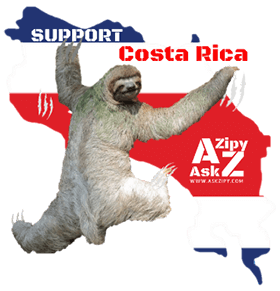Ask Zipy | Frequently Asked Questions | Costa Rica Online Business Directory, Things To Do in Costa Rica
The actual nuts and bolts of purchasing are similar to those in North America. Dealing with a real estate company you recognize can provide additional security since international franchises are governed by standard rules and regulations. Also, find out if your Costa Rica real estate agent lives in the community where he or she is working. Do they know the local market? Are the owners themselves? These are important questions as there are some large databases operating in the country run by individuals that don't even live in the country. Ask yourself if you want to be represented or advised by someone who is largely ignorant of your target market, and who cannot advise you of pricing, deals, lifestyle, and issues peculiar to that location.
Since real estate agent status in Costa Rica remains for the most part unregulated - another way to determine if your agent is a professional is to inquire if he or she belongs to a national association such as NAR (National Association of Realtors). Similarly, though membership is not obligatory, most professionals also belong to a national or regional association, such as the CCBR (Costa Rican Real Estate Association) or CRGAR (Costa Rican Guanacaste Association of Real Estate).
More importantly, work with a realtor with a good reputation. One of the best ways to find someone you can trust is simply to ask around. Given that most communities in Costa Rica are relatively small, it won't take you long to come up with some names of reputable realtors in the area.
Also of importance in the process is to secure your own lawyer to represent your interests in a property purchase. Your lawyer should check the title on your property in the central registry, and can also assist with forming corporations, opening bank accounts and doing other business related to a land purchase.






